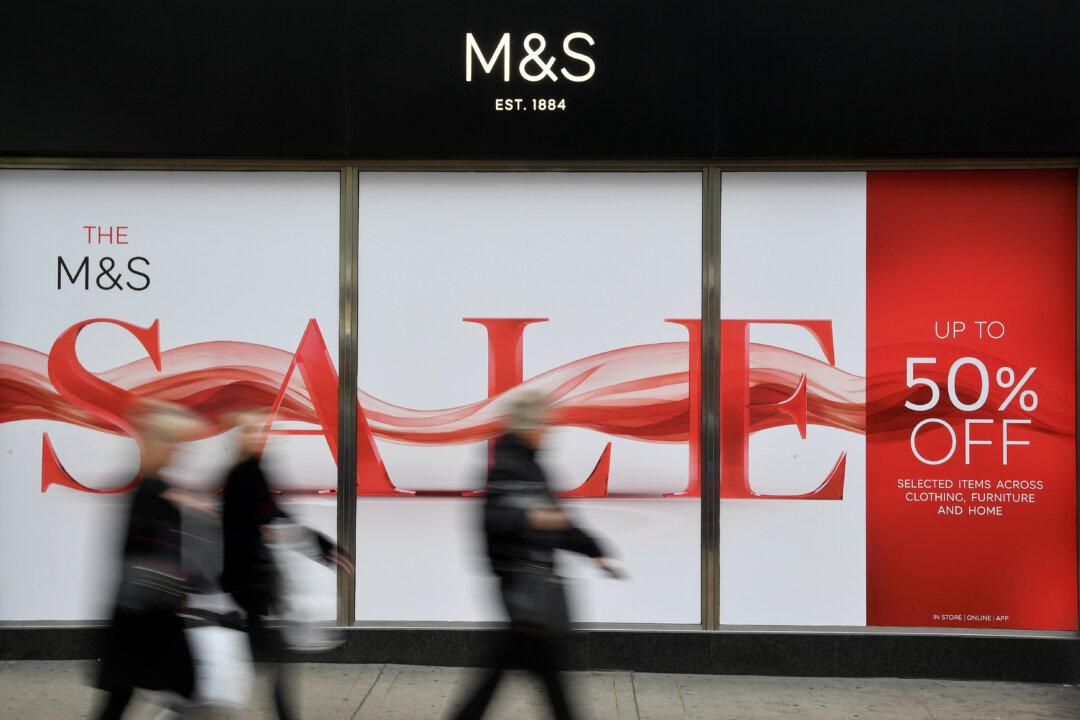LONDON—British shoppers cut back on spending in the three months to December for the first time since last spring, adding to evidence of a consumer slowdown as Brexit approaches, data showed on Jan. 17.
Retail sales volumes fell 0.2 percent in the fourth quarter after a 0.2 percent rise in the three months to November, the Office for National Statistics (ONS) said.





